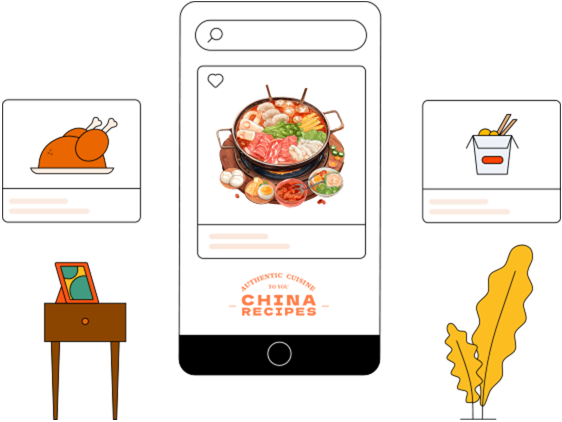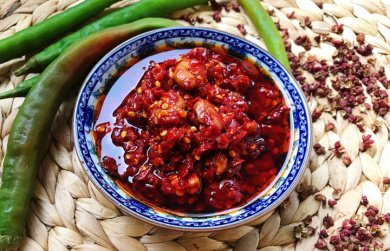listen up! 6 Things To Know About Sichuan Peppers
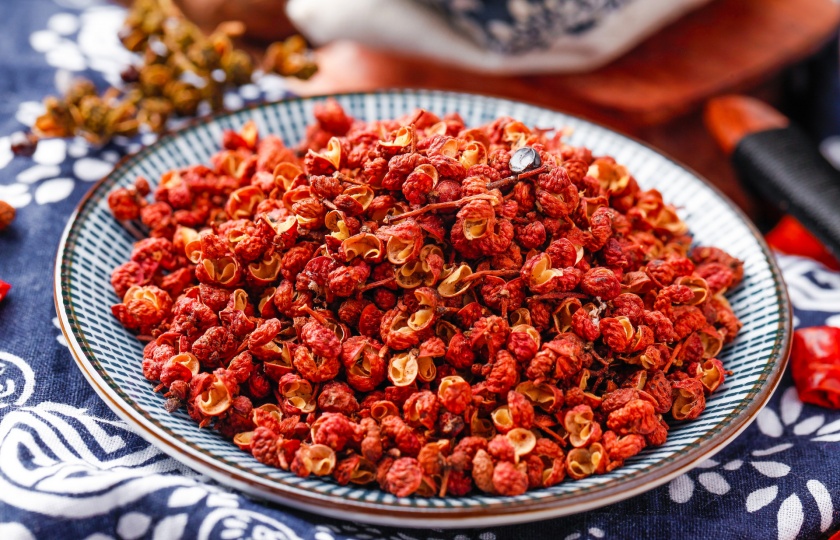
Sichuan peppercorns play an important role in Sichuan cuisine, providing dishes with a unique numbing, fresh, and fragrant flavor. Today, let’s talk about 6 things you need to know about Sichuan peppercorns, so you can better understand this ingredient!
6 Things To Know About Sichuan Peppers
1. Unique Flavor
Sichuan peppercorns have a distinctive taste, with the most notable feature being the "numbing" sensation. This numbing flavor comes from the peppercorn oil, a unique component of Sichuan peppercorns. When you take a bite, the crispy, numbing sensation quickly spreads from your tongue to your whole mouth. The numbing flavor is rich and strong, and it lingers for a while.
In addition, Sichuan peppercorns also have a subtle, refreshing fragrance. This unique aroma perfectly blends with the numbing flavor, creating the one-of-a-kind taste of Sichuan peppercorns.
2. Long History
Sichuan has a long history, with its use dating back to the "Book of Songs" period, meaning that people in China started using Sichuan peppercorns over two thousand years ago.
In ancient China, people believed that the aroma of Sichuan peppercorns could ward off evil spirits, which is why they were used in palace architecture.
3. Wide Range of Uses
In Sichuan cuisine, Sichuan peppercorns are used in many ways. They can be used to make the flavorful, spicy, and fragrant hotpot base, adding a rich aroma and stimulating taste to the hotpot. They are also used in the classic Sichuan dish Mapo Tofu, where the numbing flavor from the peppercorns combines with the spiciness of the chili peppers to create a unique sensation for your taste buds. Sichuan peppercorns also enhance the rich flavor of Kung Pao Chicken.
4. Different Varieties
Sichuan peppercorns mainly come in two varieties: red and green. Red Sichuan peppercorns have a stronger numbing and spicy taste, often used in hotpots or stews. Green Sichuan peppercorns have a more intense aroma, typically used in cold dishes or seasonings, giving a refreshing taste to salads and other cold dishes.
5. Best Pairings
Did you know? In Chinese cuisine, Sichuan peppercorns and chili peppers are a perfect match. Chili peppers provide the "spicy" taste, while Sichuan peppercorns provide the "numbing" sensation. Together, they create a more complex numbing-spicy feeling, and in many classic Sichuan dishes, Sichuan peppercorns and chili peppers always go hand in hand.
6. Storage Methods
Storing Sichuan peppercorns is quite simple. Just keep them dry. You can store them in a dry, sealed container in a cool, dark place, avoiding direct sunlight.
However, it is important to note that Sichuan peppercorns can absorb moisture and spoil, so always store them in a dry environment.
What are the characteristics of Sichuan peppercorns?
Sichuan peppercorns are a great ingredient, and from the flavor perspective, they have the following characteristics:
Strong Numbing Flavor
The biggest characteristic of Sichuan peppercorns is their numbing taste, which is unique and has a love-it-or-hate-it quality. Unlike the direct spiciness of chili peppers, the numbing sensation of Sichuan peppercorns is mild and slightly itchy, like a gentle electric shock. The numbing sensation gradually spreads across the whole mouth.
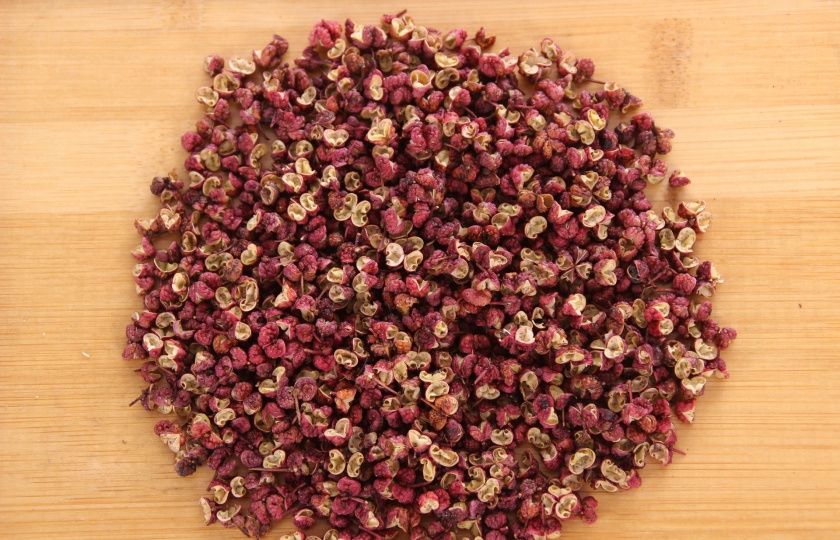
Rich Aroma
In addition to the numbing flavor, Sichuan peppercorns have a distinctive aroma. This fragrance is fresh and intense, with a herbal, refreshing scent. When cooked, this aroma becomes even more layered. For example, if you add some Sichuan peppercorns while stir-frying, the aroma will fill the entire kitchen.
Rich Flavor Layers
Sichuan peppercorns have a complex flavor profile, especially in Sichuan cuisine, where they work together with chili peppers and other seasonings to create a mix of numbing, spicy, sour, and sweet tastes. The "numbing" from the peppercorns and the "spicy" from the chili peppers complement each other, bringing a well-rounded texture to the dish.
What do you do with Sichuan peppers?
In everyday life, there are two types of Sichuan peppercorns that you might encounter: dried peppercorns and fresh ones.
Dried Sichuan peppercorns are usually pre-processed before being sold, so there is no need for special preparation. You can use them directly in cooking. If you're concerned about dust, you can rinse them with water. There are also powdered Sichuan peppercorns, which can be used directly.
Fresh green Sichuan peppercorns should be chosen carefully. Look for bright, full seeds. To fully bring out their aroma, you can stir-fry them before use. Place the peppercorns in a clean pan and gently roast them over low heat until they release a strong fragrance.
How do you know if you are allergic to Sichuan pepper?
It’s easy to determine if you are allergic to Sichuan peppercorns. You can check using the following methods:
Observe Your History of Contact
If you have a history of eating Sichuan peppercorns, think about whether you experienced any discomfort like itching, rashes, or difficulty breathing shortly after eating or handling them. If you did, it’s likely that you’re allergic to Sichuan peppercorns.
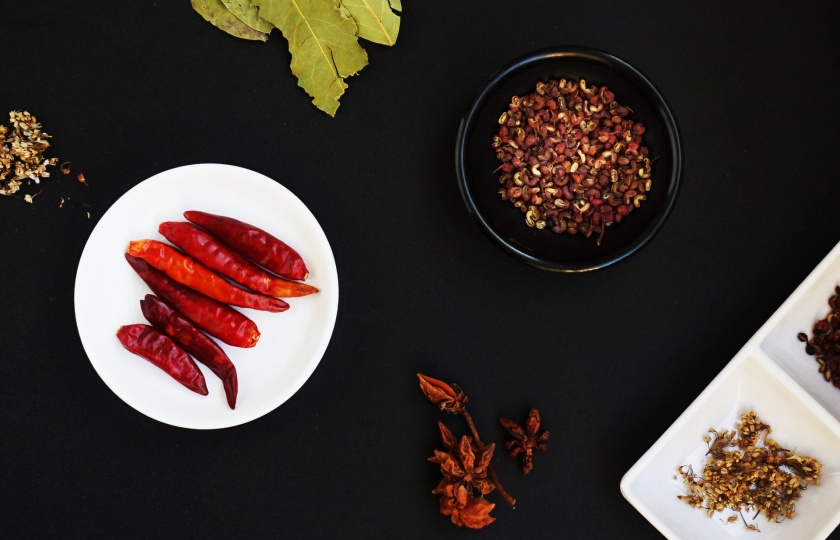
Trial Test
If you’re still unsure, you can perform a trial test under medical supervision. You can consume a small amount of Sichuan peppercorns and observe whether you experience any adverse reactions like abdominal pain, diarrhea, nausea, or vomiting. This test should only be done under the guidance of a professional to avoid serious allergic reactions.
Patch Test
This is a common method for testing allergies. Prepare a diluted solution of Sichuan peppercorns and apply it to a small patch of skin. After securing it, store it in the refrigerator and change the dressing once a day for 3-7 days. Observe any local reactions.
If mild redness, bumps, blisters, or other signs of inflammation appear, it may indicate an allergy to Sichuan peppercorns.
Visit a Doctor
If you suspect you are allergic to Sichuan peppercorns, it's best to visit a dermatologist for professional testing. Doctors may use methods such as blood tests to measure specific IgE levels to determine whether you're allergic.
Allergic Symptoms to Sichuan Peppercorns
Skin Symptoms: Itching, redness, bumps, swelling, hives, etc.
Respiratory Symptoms: Coughing, throat itching, sneezing, nasal congestion, and potentially even triggering allergic asthma.
Digestive Symptoms: Nausea, vomiting, abdominal pain, diarrhea, etc.
How to Avoid Exposure
If you're diagnosed with a Sichuan peppercorn allergy, you should avoid direct contact or consumption of Sichuan peppercorns, as well as foods and seasonings containing Sichuan peppercorns. Be sure to check ingredient labels on packaged foods to prevent accidental consumption.
Why does Sichuan pepper tingle?
Sichuan peppercorns cause a stinging sensation in the eyes primarily due to two substances: peppercorn alkaloids and volatile oils.
Peppercorn alkaloids are compounds that stimulate nerve endings. When they come into contact with the eyes, they trigger a slight tingling effect, giving the eyes a numbing and stinging sensation.
Additionally, the volatile oils in Sichuan peppercorns contain various compounds, such as limonene and linalool. These substances, when they come in contact with the eyes, can cause redness and tear production.
How to avoid getting Sichuan peppercorns in your eyes
Be cautious when handling Sichuan peppercorns to avoid contact with your eyes. If you accidentally get them in your eyes, rinse your eyes thoroughly with clean water to relieve the discomfort.
How to use sichuan peppers?
Sichuan peppercorns have many uses in daily life, with the most common being:
Cooking and Seasoning
Sichuan peppercorns are most commonly used in cooking, especially in Sichuan cuisine. When paired with chili peppers, they help bring out the rich flavors of the dish. For example, when stewing beef, lamb, or pork ribs, adding a bit of Sichuan peppercorns not only helps eliminate any gamey smell but also allows the meat to absorb the aromatic flavors of the peppercorns, making the stew tastier and the meat more tender.
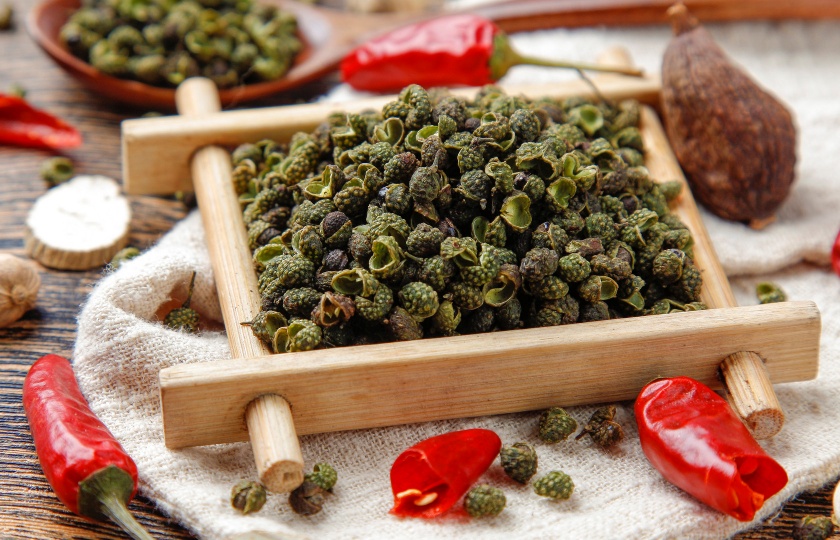
Making Sauces and Seasonings
Sichuan peppercorns can also be used to make sauces or seasonings, with one of the most common being Sichuan peppercorn oil. The process is simple: heat some oil in a pan, turn off the heat, and once the temperature lowers slightly, add Sichuan peppercorns to let them infuse the oil. After a while, pour the oil and peppercorns into a container and let it sit so the flavor fully absorbs. Finally, strain out the peppercorns, leaving you with a fragrant Sichuan peppercorn oil.
Pickling Ingredients
Sichuan peppercorns are also used in pickling food. When Chinese people pickle pork, chicken, or fish, they often add Sichuan peppercorns. This not only helps remove any unpleasant odors but also enhances the aroma, adds flavor, and can extend the shelf life of the pickled food.
Other Uses
Tea: You can place Sichuan peppercorns in a cup and steep them in hot water for 3-5 minutes to make tea.
Foot Soak: Soaking your feet in water infused with Sichuan peppercorns is a great way to promote health. Add a handful of peppercorns to hot water and soak your feet. This can help improve circulation and relieve fatigue.





